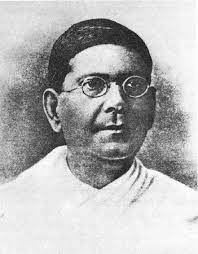Swaraj Party was a political party in India formed in 1923 by a group of prominent leaders of the Indian National Congress who were disillusioned with the Congress’ policies of non-cooperation and boycott of British institutions. The party’s primary aim was to contest the British India Legislative Assembly elections and work towards achieving self-rule or swaraj for India.

Table of Contents
Formation of Swaraj Party
The Swaraj Party was formed after a split in the Indian National Congress at the Gaya session in 1922. The split was led by Motilal Nehru, Chittaranjan Das, and other leaders who were dissatisfied with the Congress’ policy of non-cooperation and the resulting failure of the movement to achieve any significant results. The Swaraj Party was formed with the objective of contesting elections to the British India Legislative Assembly and working towards self-rule for India within the British Empire.
The Ideology of Swaraj Party
The Swaraj Party’s ideology was centered on the idea of self-rule or swaraj for India. The party aimed to achieve self-rule for India within the British Empire by working within the framework of the British India Legislative Assembly. The party believed in the power of legislative action to bring about reforms and achieve self-rule for India.
The Swaraj Party’s Achievements
The Swaraj Party contested the 1923 British India Legislative Assembly elections and won a significant number of seats. The party’s performance was impressive considering it was formed just a year earlier, and it was the first time the party was contesting elections. The Swaraj Party’s success led to a change in British policy towards India, and the British government introduced several reforms aimed at increasing Indian participation in governance.
The Legacy of Swaraj Party
The Swaraj Party’s legacy lies in its contribution to Indian politics and the struggle for independence. The party showed that legislative action could be an effective tool for achieving self-rule for India. The Swaraj Party’s success in the 1923 elections led to the introduction of several reforms, including the Government of India Act, 1919, which provided for the expansion of legislative councils and increased Indian representation in governance.
Conclusion
The Swaraj Party was a significant player in Indian politics during the early 20th century. The party’s success in the 1923 elections paved the way for Indian participation in governance and increased representation in the British India Legislative Assembly. The Swaraj Party’s contribution to the struggle for independence and the idea of self-rule for India has left a lasting impact on Indian politics and history.
Important Links